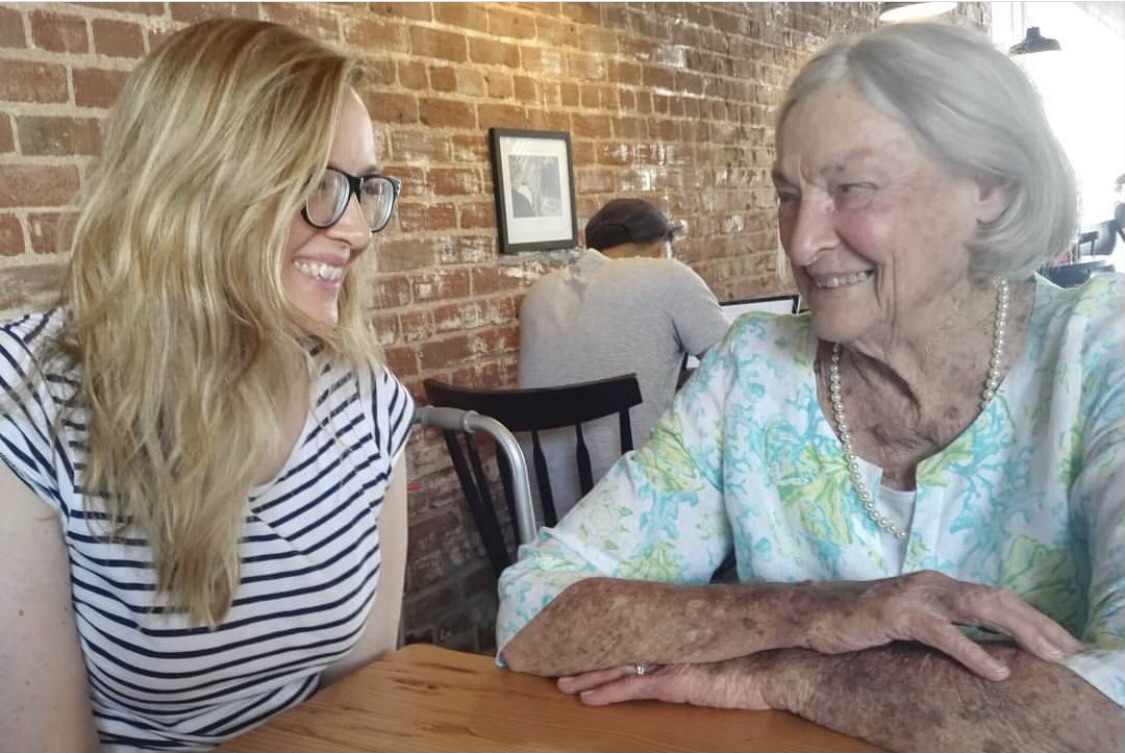 Kate Wentland is a hospital chaplain resident in Southern California. Having previously worked for Pacific Southwest Mennonite Conference in a peace and justice role, Kate also served with Mennonite Central Committee for eight years in China, six of which were spent teaching at the national seminary in Nanjing. Kate organizes cooking groups wherever she lives and writes the food blog Two Jade Bowls.
Kate Wentland is a hospital chaplain resident in Southern California. Having previously worked for Pacific Southwest Mennonite Conference in a peace and justice role, Kate also served with Mennonite Central Committee for eight years in China, six of which were spent teaching at the national seminary in Nanjing. Kate organizes cooking groups wherever she lives and writes the food blog Two Jade Bowls.
_____________________________________________________
Last weekend, friends gathered in my home to cook Ukrainian dishes — from my Mennonite diaspora heritage — and to collectively donate to Mennonite Central Committee’s (MCC) Ukraine emergency kits. My mom’s side of the family was part of the Mennonite migration wave that spent over a century in Ukraine before settling in North America. While they did not learn the language, they absorbed much of the cuisine. Growing up, many of our extended family holiday and birthday meals revolved around verenika (similar to a pierogi), kjielkja (a noodle dish similar to spätzle), and zwiebach (a type of sweet roll). On many weekends, Grandma made Ukrainian crepes for breakfast, which she called “Russian pancakes.” We called ourselves “Russian Mennonites,” since during the years our ancestors lived in Ukraine, Ukraine was included in the southern part of the Russian empire. Catherine the Great invited Mennonites from Germany and the Netherlands to farm in Ukraine as settlers — a complicated history of complicity with empire, that foretold how easy it would be for us to be complicit with empire today. Even though the Russian label has been used as part of our heritage and our food, Grandma’s “Russian pancakes” don’t look or taste like Russian blini. They look like the Ukrainian crepes I see in online recipe searches. Her verenika are not small and delicate like Russian varyniki but rather, look like the Ukrainian varyniki I find in Ukrainian cookbooks.
My friends and I cooked together to eat in solidarity, talk about the war and what it means to offer a peaceful witness, and to donate together.
Of course, we could have written checks without cooking together, but knowing your friends are donating is positive peer pressure. It also feels more beautiful and human to combine charity with food, storytelling and community. That’s why the MCC Relief Sales have always been so effective. It is more fun to donate when you can reconnect over nostalgic foods. Because I can’t join the West Coast Relief Sale in Fresno this year, this dinner party with friends will help fill in that gap for me emotionally.
Trying to stay true to tradition, I consulted “the Norma Voth books” (community shorthand for Mennonite Foods and Folkways from South Russia Vol. 1-2), as well as congregational spiral bound cookbooks. However, I found I was also adding my vegetarian and contemporary stamp to the recipes. Together, we made verenika with the village cheese I found at a local Persian grocery and topped it with mushroom gravy instead of ham gravy. We made the green bean soup with summer savory with a mountain of braised leeks instead of ham. For dessert, we substituted the cow’s milk in the batter of those Ukrainian crepes for oatmilk, and we were filled them with cardamom-stewed strawberries and lemon curd made with Meyer lemons from my parents’ backyard.
 In the kitchen and around the table, I told my friends stories about how Grandma Willa made these crepes for breakfast most weekends, especially if family was visiting, and how she taught me how to develop muscle memory with a crepe pan. I reminisced about the various ways we served verenika — sometimes boiled and topped with gravy, sometimes fried — and how baking leftovers with a sprinkling of sugar and a splash of milk immediately floods my mind with memories of her kitchen.
In the kitchen and around the table, I told my friends stories about how Grandma Willa made these crepes for breakfast most weekends, especially if family was visiting, and how she taught me how to develop muscle memory with a crepe pan. I reminisced about the various ways we served verenika — sometimes boiled and topped with gravy, sometimes fried — and how baking leftovers with a sprinkling of sugar and a splash of milk immediately floods my mind with memories of her kitchen.
My friend Sue Park-Hur turned to me at the table and said my storytelling was reminiscent of our gathering last fall, when we cooked Korean dishes at her home, discussing the book “Crying in H-Mart” and its themes of food, grief and identity. At that dinner, Sue shared her own grief for both her mother and step-mother and how food was intertwined through it all. She said she noticed I was also processing grief in this meal. She was right; I hadn’t realized that was another layer to this dinner. My Grandma Willa died a little over two years ago, just before the COVID-19 pandemic began. Gatherings at her home and gatherings in general stopped at the same time, so my grief for her was blanketed by general distress over the pandemic. Finally, now in this season, it felt healing to share some of her recipes and to encourage those traditions to expand and live on. The verenika weren’t as pretty as hers, but they were delicious.
I am glad to have spent the time uncovering the multiple layers of loss and love at our dinner party. Now, each bite of food from recipes carried out by our family reminds us of their present hunger. We eat slowly, perhaps reverently, thinking of the endangered. Readers, please consider donating to MCC, especially over a meal with friends.
See Kate’s Grandma’s Ukrainian crepes recipe.
The views and opinions expressed in this blog belong to the author and are not intended to represent the views of the MC USA Executive Board or staff.

